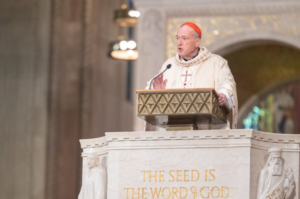Fewer Tenured Professors in Years to Come
By Bridget King
Of the 16 new staff members hired by Catholic University this year only two were on the tenure track which signals an unwanted shift in University policy for some.
Tenure is prestigious rank given to professors that, along with the increase of stature, provides a level of job security, as tenured professors can only be fired if the university that employs them is able to present evidence that the professor is incompetent or behaves unprofessionally.
Tenured professors can also be dismissed if the department that employs them is to be closed or the school itself is under extreme financial difficulty. According to the National Education Association (NEA) only 2% of tenured faculty is dismissed annually.
The process of becoming a tenured professor is difficult and requires months of work. During a certain time period of academic review, called the “probationary period,” universities and colleges can choose to not renew faculty contracts and terminate faculty without any reason or cause.
Throughout the course of the “probationary period,” senior professors, as well as administrators, have the right to review and judge the work of new employees that are teaching within a university. The chosen senior professors and those in the administrative staff will then decide whether or not to recommend tenure to a given professor.
A survey conducted by the NEA states that in a typical year, about one in five probationary faculty members were denied tenure and lost their job. If recommended tenure, one must apply to be sure they are on the tenure-track.
According to The Chronicle of Higher Education, in 2011 there were approximately 385 full-time professors at Catholic University. Of these 385, approximately 219 were already tenured and 112 full-time professors were on tenured-track. This report also stated that 54 professors were not tenured.
Universities typically rely on part-time or temporary non tenure-track faculty to teach undergraduates. This means that no more than one-third of university faculty members are tenured. Research universities rely on tenured professors for research and other scholarly writings.
If a professor or faculty member is tenured, they are still accountable for their work. At many academic institutions, professors and faculty members are evaluated for things such as promotion and increase in salary. However, if there is any indication of incompetence or unprofessional conduct, tenured faculty members may be fired.
The shift away from hiring tenured faculty leads some to conclude that Catholic University is shifting from its traditional role as a research institution and into a role more congruent with that of a state school. These types of universities, although responsible for the education of many students, publish few scholarly works, compared to a research institute.
As we continue the year and gain more faculty and staff at Catholic University, changes to the University hiring policy will become more apparent.







